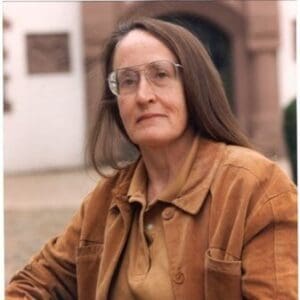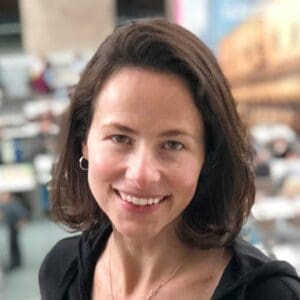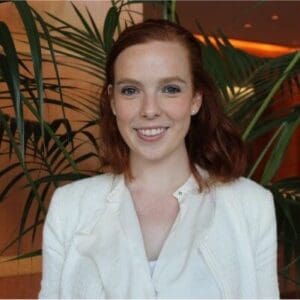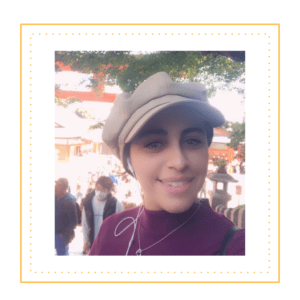We all need a little bit of inspiration in our lives every once in a while. A reminder that we can do it.
That we have what it takes to succeed and that we are capable regardless of what anyone says. This gets even more relevant if you’re a woman in the tech field. The tech field always had that stigma surrounding it, portraying it as a men’s field and that women have no place in it.
I never quite understood why tech would be a male-dominated field when intelligent, amazing women are responsible for many significant advancements in the area. Whatever aspect of tech you want to consider, from the practice to the academic one, women have always been here, shaping the field of computer science that we know today, emphasizing the need for Closing the Gender Gap in STEM: Additional Measures Needed.
Ever since the beginning of computers and programming, women were a big part of the field; evidence of that is Grace Hopper’s work on COBOL, Ada Lovelace – the first programmer ever, or Kathleen Booth, the creator of assembly language, to name a few.
Women’s contributions to the field never stopped; they just got overlooked. That’s why I feel we have to highlight these accomplishments, document them, and consider them a great inspiration to the next generation of female computer scientists. So, in this article, I will highlight the work of 5 female researchers to inspire you to pursue tech.

Dr. Krysta Svore, Quantum Software Researcher at Microsoft
Krysta Svore
Let’s start the list with Dr. Krysta Svore, a quantum software researcher at Microsoft. Quantum computing is considered one of the directions for future computing. Dr. Svore’s primary goal is to develop the next generation of quantum software and close the gap between the quantum and classical worlds by working on different aspects of technology, mathematics, physics, and computer science. She is now developing a quantum computing curriculum that she will be teaching at the University of Washington.
In addition to her work on developing future quantum technologies, Dr. Svore is assisting the department of energy in the US in advancing their scientific computing committee. She is also a board member of a non-profit organization devoted to the education and mentoring of young women interested in the tech field. Moreover, she is an advocate of diversity and helping young women with their self-esteem to pursue a career in tech and shape the future of technology.

Dr. Mary Shaw, Professor of Computer Science in the SCS at Carnegie Mellon
MARY SHAW
Next up on our list is professor Mary Shaw. Professor Shaw is a Professor of Computer Science in the SCS at Carnegie Mellon with research interest and contribution in various fields, from software architecture and programming languages design and abstraction to reliable software development and analysis of algorithms.
Dr. Shaw received one of the highest awards in leadership, the National Medal of Technology and Innovation. She was also the recipient of the Stibitz Computer Pioneer Award and the Warnier Award for software engineering contributions. Professor Shaw has over 100 impactful papers with more than a 3000 citation count, and that’s one reason she is considered one of the most influential computer science researchers of the modern era.

Dr. Fernanda Viégas, principal scientist and co-lead managing the PAIR (People + AI Research) initiative team at Google.
Fernanda Viégas
Moving on from the world of academia and back into practice, the following inspirational researcher is Dr. Fernanda Viégas. Dr. Viégas is the principal scientist and co-lead managing the PAIR (People + AI Research) initiative team at Google. Her main research interests revolve around improving human/AI interaction and weaving societal expectations and values into designing and evaluating AI systems.
Dr. Viégas’s passion is data visualization; she helped build a system that efficiently made complex data understandable by any audience. Her work is now a part of the permanent collection of the Museum of Modern Art in New York City, USA. As a Latina from Brazil with a non-technical background, Dr. Viégas was always passionate about increasing diversity in the tech field, working with and leading students, underrepresented women, and minorities in programming and computer science.
Y-Lan Boureau, Research Scientist and Program Director at Facebook Artificial Intelligence Research and the Natural Intelligence ELLIS program

Dr. Y-Lan Boureau, a research scientist and a program director at Facebook Artificial Intelligence Research and a Natural Intelligence ELLIS program.
Y-Lan Boureau
Another brilliant artificial intelligence researcher is Dr. Y-Lan Boureau, a research scientist and a program director at Facebook Artificial Intelligence Research and a Natural Intelligence ELLIS program. Dr. Boureau’s work focuses on conversational AI and dialogue. She was also a researcher at the Center for Neural Science of New York University, where she worked on computational models and neural bases of learning and decision making.Dr. Boureau also worked on various data science topics, mainly focusing on machine learning, deep learning, and computer vision as part of the Computational and Biological Learning Lab research team.

Sara Hooker, Research Scientist at Google Brain.
Sara Hooker
Last but not least is Sara Hooker, a research scientist at Google Brain. Her daily work focuses on training models and improving their accuracy to produce interpretable, compact, fair, and robust models. She is also one of the organizers of the Trustworthy ML Initiative, which is a collection of seminars dedicated to spreading the education of Trustworthy ML.
Aside from her work at Google, Sara Hooker is a big supporter of research accessibility and education. She founded Delta Analytics, a non-profit that works with communities around the world to support and build technical tools and capacity to empower and encourage others to use data to make the world a better place. She also is an active member of
MLC research group, a group that focuses on making machine learning research accessible to everyone with a passion for machine learning so they can participate in it and understand it better.
Final thoughts
Pursuing a career in tech is not always an easy journey for women. With the field pictured as a male-led field, young girls find it intimidating and challenging to make their voices heard, and their talents proved. But, although it is not easy, many women have indeed shaped the past, present, and future of computer science.
Everything technical starts from the research labs, today’s research is tomorrow’s reality. Today, many brilliant, creative, incredible female researchers are helping to expand our technical knowledge and abilities and shaping the future of computing. These researchers are precisely the inspiration every young woman and even professional women need, to keep changing and bettering our present while helping build a better future.
These amazing women have stood against the stereotypes of the tech field and proved all of them wrong; they proved women can make it and are intelligent and capable of influencing the tech field and changing our world. So, next time you feel down and looked down on by society, take a look at one of these women and remind yourself, you’ve got what it takes to shine and change the world!



 AUTHOR:
AUTHOR: 




